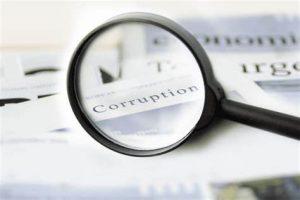
Umm Muhammed Umar
Radio Islam spoke to Corruption Watch’s Project Coordinator, Mzwandile Banjathwa, focusing on Corruption Watch’s annual report. The report, ‘Pushing for Change’, was released this week, as the organization commemorates 10 years since its establishment in 2012. Despite the danger to whistle-blowers, as the death of Health Department whistle-blower, Babita Deokaran proves, the bravery of the whopping 36 200 whistle-blowers, continues.
Banjathwa said that it would have been impossible for the Zondo commission to realize the extent of state capture, and which individuals had been involved, if it were not for whistle-blowers. He said, “our work as Corruption Watch is predicated by the requests that we receive from members of the public, who are these brave whistle-blowers, who are in essence, individuals who use their freedom of expression to fight the abuse of power that undermines public trust.” He added, “they do so in light of a huge detriment: they tend to suffer, they do so in the face of losing their livelihoods and sometimes even losing their lives, and facing demotion and discrimination, but they continue to do so.”
Banjathwa said that the role of the whistle blower was crucial, and that the information they provided was very important in fighting in challenging the abuse of power, and in holding leaders accountable. He said, “we wouldn’t be able to have undertaken the litigation processes that we have undertaken without the whistle-blowers. We wouldn’t be able to mount various media campaigns that we have been able to do without whistle-blowers; wouldn’t be able to know where corruption is happening, how is it happening, and who’s actually doing it.”
Corruption Watch was launched in 2012, during the presidency of former President Jacob Zuma, when South Africans began to see a heightened level of corruption. There were not sufficient platforms for reporting at the time. Banjathwa said, “So, Corruption Watch came at a very opportune time to provide members of the public with an opportunity to report these incidences of corruption.” He said that the organizations members worked while being shunned: “We’ve been called names; it wasn’t popular to be an anti-corruption organization at that particular time……..these are the challenges that continuously push us to want to do more.”
Surprisingly, the most corruption occurred, according to Banjathwa, during that lockdown period of 2020. It increased during the times where people needed government services much more. The ‘Pushing for Change” report indicated that allegations of maladministration rose 18%, while procurement corruption and abuse of authority were tied at 16%, during that period. Fraud sat at 14% and misappropriation of resources at 12%, with dereliction of duty at 8%. Banjathwa said, “when you look at the institutions which are mainly implicated, we find that the public sector is leading with 67% of these reports culminating from the public sector, and 33% of them actually coming from the private sector.” He added, “national government accounts for 28% of reports and local government comes in second with 24% of reported incidences of corruption, and provincial government at 8%.” Corruption Watch found that the police ranked high as a sector which is marred with corruption, followed by corruption at schools and in housing. Banjathwa said that growing numbers of people were reporting corruption within the traffic department and the licensing department as well.







0 Comments